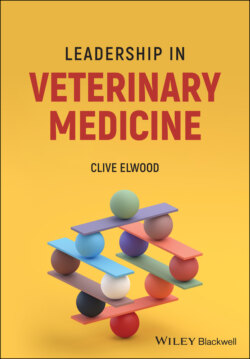Читать книгу Leadership in Veterinary Medicine - Clive Elwood - Страница 47
3.2.1 Curiosity and Growth Mindedness
ОглавлениеWe are used to applying our curiosity in the service of our technical role and this can be directed to nontechnical challenges too. Carol Dweck says:
Individuals who believe their talents can be developed (through hard work, good strategies, and input from others) have a growth mindset. They tend to achieve more than those with a more fixed mindset (those who believe their talents are innate gifts). This is because they worry less about looking smart and they put more energy into learning. (Dweck 2016)
A desire to understand people and what is happening in and around you, and a desire and willingness to learn and grow is a fundamental competency for leadership upon which all others are based. Underlying all of this is the concept of neuroplasticity and a trust in our ability to change how we think, behave, and feel (see Chapter 12).
Leadership requires adaptability both in the moment and over time. We can find ourselves in unfamiliar territory where we need to develop new understanding and ways of being. There are a number of reasons why we can be fixed into old and unhelpful ways of thinking. At times of stress, for example, we tend to fall back on familiar and comfortable thought patterns and behaviours. Changing our thinking can, therefore, be most difficult when change is most needed, unless we have access to internal and external support and may have even prepared for the need for change ahead of time.
We should not, however, change for change's sake. Curiosity that moves into overanalysis, or distracts from the matter in hand, or manifests as a need for ever more information before decisions are made is paralysing, unhelpful, and frustrating. Sometimes we need to save our questions for later if there is a need to decide now, e.g. at times of chaos and crisis.
